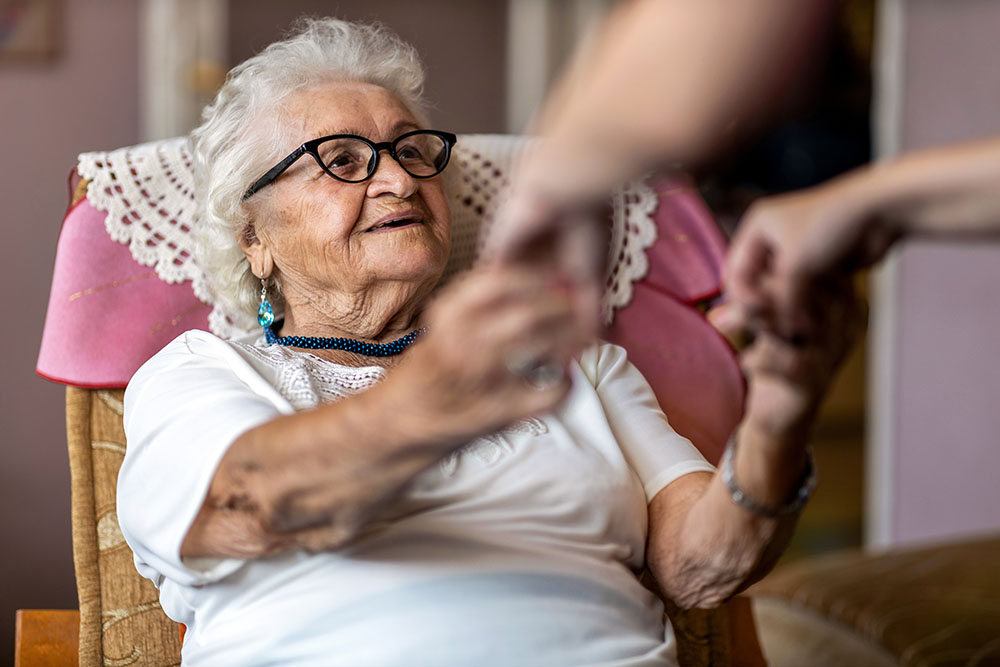
Does a recent visit with a loved one have you worried about their day-to-day life? In our later years, even simple tasks can become difficult to perform or even remember. Both home responsibilities and daily errands can often go untended, putting your loved one’s health and well-being at risk. That’s where our trained In-Home Caregivers can help.
In-home care allows patients to live independently, in the comfort of their home, assisted by an in-home care professional. Assistance comes in many forms and may include companionship, help with day-to-day tasks, or periodic check-ins. Our in-home care services are tailored to meet individual needs, and we are committed to helping our clients maintain their independence, quality of life, and dignity.
In-home visits are available from 1 hour to 24 hours. 24-hour care is available.
Interested in visits shorter than one hour? See our Community Based Services page for more information.

The primary difference between in-home care and other residential services is the amount of independence a person has. With in-home care, individuals can remain in their homes while still receiving assistance with day-to-day tasks, such as bathing, running errands, or housekeeping.
Assisted living facilities and nursing homes require individuals to leave their homes and live on campus to receive assistance. A person does not need to reside in an assisted living facility or nursing home to receive full-time care; 24-hour in-home assistance is available.
Hospice is a type of in-home care provided to patients with advanced or terminal illnesses. Hospice care is more specialized than traditional in-home care and may be recommended by a patient’s healthcare provider.
The cost of in-home care is dependent on a variety of factors, including length of care time and services needed. Please contact us for a quote.
If you are eligible for insurance or benefits, your costs may be fully or partially covered. Your insurance provider will be able to determine if you qualify for financial assistance for in-home care.
In-home care is available for anyone who needs it, but it might not be suitable for everyone. Different insurance and financial assistance programs may have their own specific eligibility requirements, so it’s essential to check with your provider to see if you qualify.
Every person has unique needs, and what works for one may not work for another. Some people may prefer in-home care as it can offer the right level of assistance while still allowing them to maintain their independence. However, others may feel that in-home care is too extensive for their needs, or they might require specialized attention that in-home care cannot provide. If you are unsure whether in-home care is the right choice for you or your loved ones, we recommend that you give us a call. We can help you understand your options and determine the right level of support that meets your needs.
How do I know it’s time for in-home care for me or my loved one? We are asked this question nearly every day. As the person closest to your loved one, knowing it’s time for in-home care is likely a matter of trusting your intuition. Indicators can be as subtle as observing changes in their home environment, or as dramatic unexplained weight loss or gain, unexplained injuries such as cuts or bruises, general forgetfulness, or minor damage to the car in terms of dents or scratches.
For a more in-depth look at questions you can ask, download our free guide to help you in making your assessment. Or simply call us for a complimentary assessment.


Mountain Home Care- helping seniors in Western North Carolina remain active and independent within the comfort of their own homes by providing personal service with a gentle, caring focus.